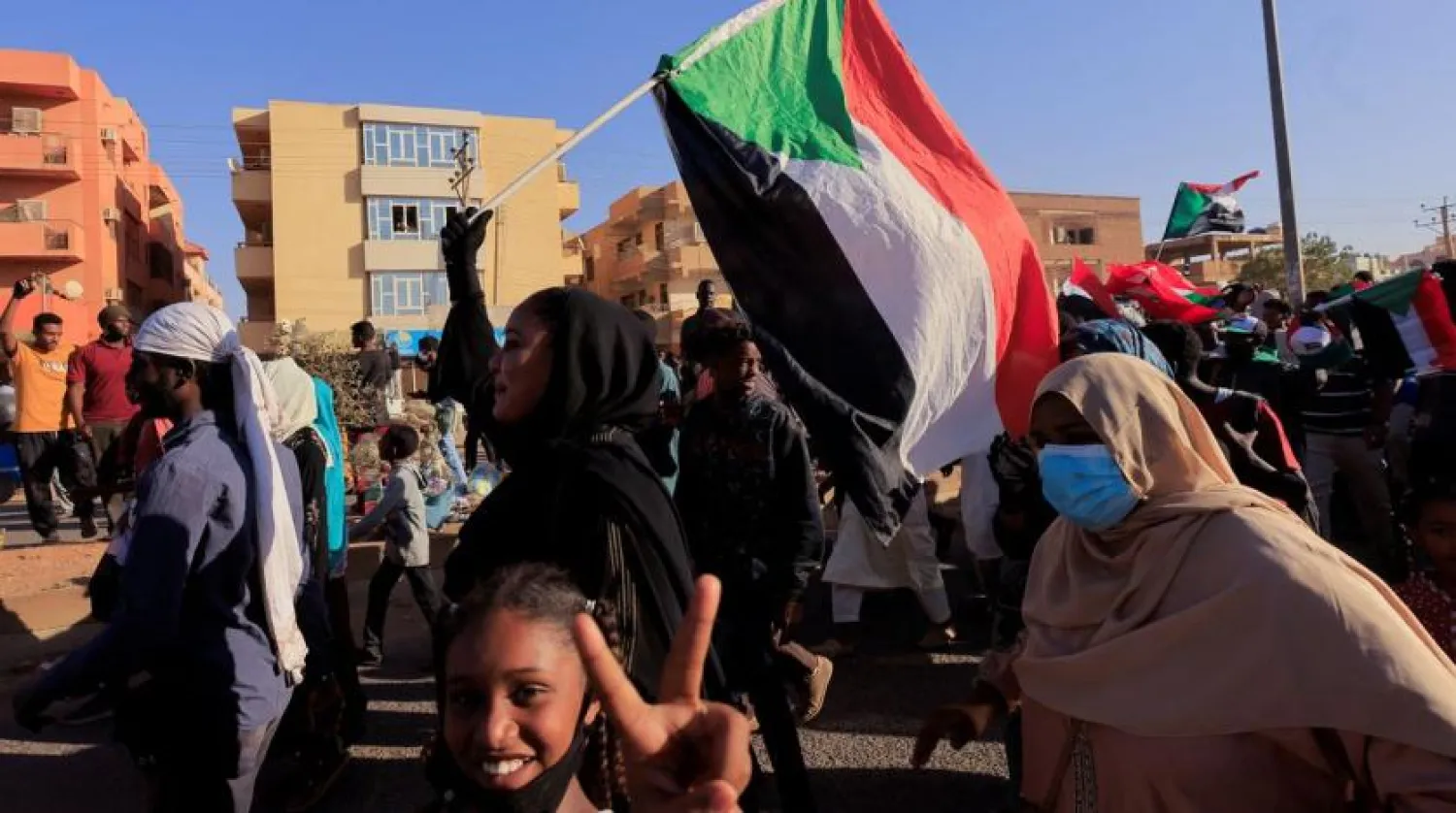Thousands of Sudanese protesters took to the streets of the capital Khartoum and other cities on Monday to mark the third anniversary of former leader Omar al-Bashir’s ouster and protest the prospect of renewed military rule.
Bashir was overthrown after three decades in power by a group of his top generals, who later entered into a power-sharing government with the civilian groups that had led months of protests in 2019.
That arrangement ended on October 25 when the same military leaders, led by General Abdel Fattah al-Burhan, staged a coup, which has plunged the country into economic and political turmoil.
One protester told Asharq Al-Awsat that these demonstrations will not end before restoring the civilian rule.
Mass demonstrations have rocked Sudan since this coup, upending the country's transition to civilian rule and drawing wide international condemnation.
Protesters blocked main roads, burning tires, banging drums and chanting revolutionary poems.
Protests against the coup have taken place despite a security crackdown that has killed 94 people and injured thousands, according to independent medics. Security forces have denied targeting civilians.
Khartoum protesters broke their day-long fasts in the street, as they did in major protests last week, and numbers swelled after sunset.
Protests were also seen in other large cities, including Bahri, Omdurman, Port Sudan, Madani, and El Obeid.
The Sudanese Professionals’ Association reiterated in a press statement its position, which rejects negotiations and any form of partnership with the coup leaders.
This stance comes in light of demands and initiatives calling for negotiations with the military and all parties to address the stifling political, economic and security crisis the country is currently suffering.









